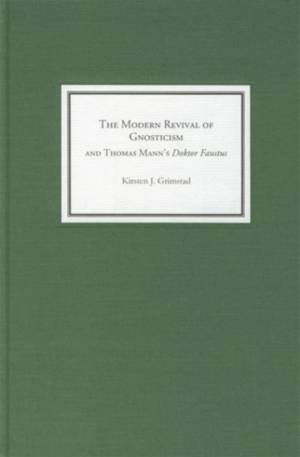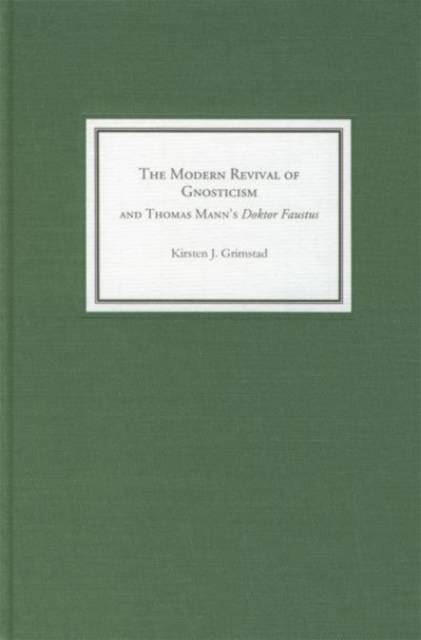
Vous voulez être sûr que vos cadeaux seront sous le sapin de Noël à temps? Nos magasins vous accueillent à bras ouverts. La plupart de nos magasins sont ouverts également les dimanches, vous pouvez vérifier les heures d'ouvertures sur notre site.
- Retrait gratuit dans votre magasin Club
- 7.000.000 titres dans notre catalogue
- Payer en toute sécurité
- Toujours un magasin près de chez vous
Vous voulez être sûr que vos cadeaux seront sous le sapin de Noël à temps? Nos magasins vous accueillent à bras ouverts. La plupart de nos magasins sont ouverts également les dimanches, vous pouvez vérifier les heures d'ouvertures sur notre site.
- Retrait gratuit dans votre magasin Club
- 7.000.0000 titres dans notre catalogue
- Payer en toute sécurité
- Toujours un magasin près de chez vous
The Modern Revival of Gnosticism and Thomas Mann's Doktor Faustus
Kirsten J Grimstad
104,95 €
+ 209 points
Description
Explores the resurgence of Gnostic thought in the late 19th and early 20th centuries, and provides a startling reevaluation of Mann's late novel. Gnosticism is an extreme religious sensibility, dating from the early Christian era, that combines a radically pessimistic view of life and the world with an optimistic belief that the human spirit is itself divine, though lost inan alien and evil world. This study explores the reappearance of Gnostic themes across the landscape of European literature and thought and in major works by Thomas Mann. Prompted by the rediscovery of original Gnostic writings during the late 19th and early 20th centuries, this supposedly long-dead sensibility was adopted as the earliest precursor for such far-reaching schools of thought as C. G. Jung's model of individuation, the modern nihilism of existentialism, and Gershom Scholem's treatment of Jewish mysticism and the revolutionary messianic movements inspired by kabbalist thought. Kirsten Grimstad argues that the modern cultural movement known as the religion of art rekindled a culturally subversive Gnostic sensibility that was expressed in an extremist revolt against modernity, reiterating the Gnostic revolt against the cosmos. Close textual analysis of Thomas Mann's Doktor Faustus extendsthis argument by exposing a Gnostic redemption drama that is encrypted within the main story of the protagonist's downfall and damnation. Recognizing this hidden story unlocks some of the novel's central problems. Kirsten J. Grimstad is associate professor of graduate studies at the Norwich University, Northfield, Vermont.
Spécifications
Parties prenantes
- Auteur(s) :
- Editeur:
Contenu
- Nombre de pages :
- 308
- Langue:
- Anglais
- Collection :
- Tome:
- n° 1
Caractéristiques
- EAN:
- 9781571131935
- Date de parution :
- 15-01-02
- Format:
- Livre relié
- Format numérique:
- Genaaid
- Dimensions :
- 158 mm x 238 mm
- Poids :
- 625 g







